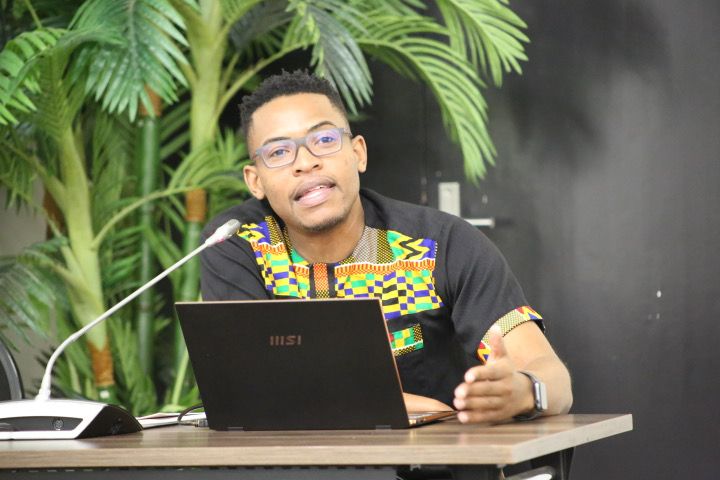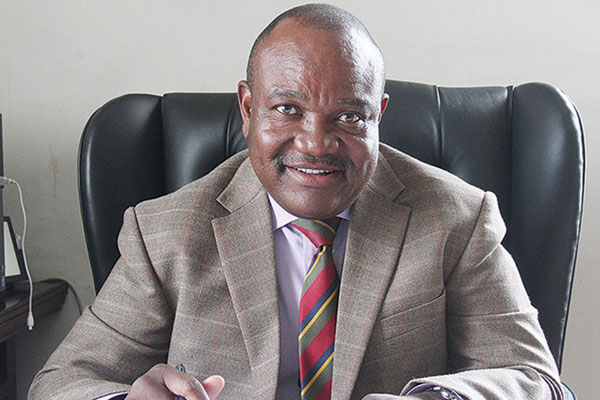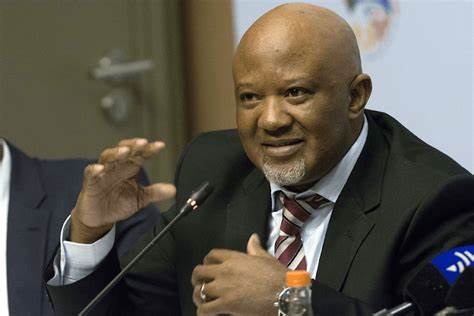By Nyasha Mcbride Mpani
HARARE – The upcoming elections in Zimbabwe present a unique opportunity for the young generation to break away from historical associations with pre- and post-election violence.
This time, they have the chance to shatter this stereotype and resist attempts by certain leaders to manipulate them into becoming agents of political violence.
Despite significant challenges such as youth unemployment, limited access to quality education meeting market demands, child marriages, sexual abuse, drug abuse, mental health issues, and a rising cost of living, the youth are actively engaging in the electoral cycle and processes.
Their commendable involvement in these elections highlights their determination to disprove the notion that they are the face of violence, emphasizing their potential to drive positive change and contribute to a peaceful and prosperous future for Zimbabwe.
The African Union Agenda 2063, known as “Africa We Want,” emphasizes the vital role of youth in peace, security, and development in Africa and the diaspora. Aspiration 6 of Agenda 2063 recognizes the immense importance of African youth in shaping the future of the continent and highlights their pivotal role in decision-making processes.
This is why the empowerment of Zimbabwe’s youth through the electoral process is of great importance. Youth in Zimbabwe have a paramount role to play in the upcoming general election and should utilize the elections as an opportunity to take up space on governance decision-making tables.
Recent Afrobarometer pre-election survey results have revealed a promising trend in Zimbabwe’s political landscape, particularly among the youth demographic. A substantial portion of Zimbabwe’s young population has taken an active interest in the upcoming elections, with 65% of individuals aged 18-25 and 86% of those aged 26-35 registering to vote, showcasing their commitment to shaping the destiny of their nation.
This can be attributed to key initiatives by government, civil society, and international organizations in sensitizing the youth about their rights and responsibilities in choosing leadership through democratic means such as #TakaNoVota and #GetOnThebus.
Compared to other young Africans, Zimbabwean youth display even higher enthusiasm for democratic processes. According to the Afrobarometer survey conducted across 28 African countries, 56% of young Africans expressed tolerance for military intervention, making the high levels of electoral participation among Zimbabwean youth even more remarkable.
In 2021, Zimbabwe ratified the African Charter on Democracy, Elections, and Governance (ACDEG) to align with Africa’s shared values and standards on democracy and good governance. ACDEG sets out rules for free and fair elections and condemns unconstitutional changes of governments.
This move was crucial as Zimbabwe also signed on to the African Peer Review Mechanism (APRM) as part of its reform agenda, making the upcoming election a litmus test for Harare.
Given the scourge of unconstitutional changes of government on the African continent, youth in Zimbabwe are urged to be vigilant and proactive in fostering peaceful building and encouraging a culture of tolerance before, during, and after elections.
It is a fact that electoral processes in Africa have been complicated and have previously resulted in bloodshed.
Despite the distressing economic and social challenges faced by the country, the active involvement and significant appetite of Zimbabwean youth in electoral processes are hopeful signs for the nation’s future. Their willingness to participate in the electoral process indicates a genuine desire to engage leadership, take up space by meaningfully participating in the political affairs of the country.
The ultimate test of this commitment will be seen on the voting day, 23 August, as the actual voter turnout will determine whether this enthusiasm translates into effective political engagement.
Nevertheless, the current data paints an optimistic picture of the potential impact that young Zimbabweans can have in shaping the country’s democratic future. However, there is a strong need to caution youth not to view these general elections as a zero-sum game.
A significant stride towards a more inclusive and representative democracy in Zimbabwe is the establishment of a youth quota for the upcoming election.
This progressive move, as outlined in Clause 11 of the passed Zimbabwe Amendment Number 2 Bill, has resulted in the creation of 10 parliamentary seats reserved exclusively for youth aged between 21 and 35 years old.
This should be accepted by young people as a victory for the youth mainstreaming agenda, a best practice for sharing with other African countries, and a good opportunity for young people to break barriers by voting for young candidates whom they can hold accountable.
This provision serves as a pivotal entry point for young individuals, ensuring their active participation in the 10th Parliament and making the long-standing call for #YouthAtTheTable a tangible reality.
By designating these seats specifically for youthful candidates, Zimbabwe’s government has demonstrated its commitment to recognizing the importance of youth representation, inclusivity, and managing diversity in the decision-making processes of the nation.
The implementation of the youth quota not only empowers the young generation but also sends a powerful message about the country’s dedication to promote inclusive governance in accordance with the provisions in the African Youth Charter.
While celebrating the achievements in youth voter registration and the establishment of the youth quota, Zimbabwe’s youth hold tremendous potential in shaping the country’s future and driving its development.
The active engagement of young people in the electoral process is a positive sign, but sustained efforts are necessary to further encourage their participation and strengthen democratic institutions.
By addressing challenges such as youth unemployment and promoting civic education, Zimbabwe can harness the energy and enthusiasm of its youth, ensuring a brighter and more inclusive future for the nation as a whole.
Youth in Zimbabwe should remember that elections are not isolated events but rather a continuous process. Therefore, post-election national building initiatives should be prioritized and planned.
For instance, the issue of post-electoral violence, often flagged in previous electoral cycles in Zimbabwe, could be addressed through intensive youth advocacy, as young people often find themselves at the forefront of acts of senseless violence.
The technical support of the African Union (AU), as demonstrated through the African Governance Architecture (AGA) and African Peace and Security Architecture (APSA) Secretariats, to empower and engage the youth in Zimbabwe is commendable.
The National Training of Trainers conducted for youth leaders, including the National Youth Council, Youth leaders of political parties, and other non-state actors attended by African Union Youth Envoy Ms. Chido Mpemba and Ms. Cynthia Chigwenya, the African Union Youth for Peace Ambassador for Southern Africa respectively from Zimbabwe in June 2022, prepared young Zimbabweans to participate effectively in the upcoming elections.
One key aspect emphasized during the training is the need for young Zimbabweans to critically examine the manifestos presented by their preferred political representatives.
This crucial step allows the youth to make informed decisions when they head to the polls in the upcoming elections. By thoroughly interrogating the manifestos of all political parties contesting, young Zimbabweans can assess the vision, policies, and commitments put forth by each party.
This informed approach ensures that their votes are cast from a position of understanding and alignment with their own aspirations and interests.
The African Union’s “Guide to youth participation in political and electoral processes in Africa” indicates that young people must be provided with proper tools such as education and access to credible and requisite information that enables them to adequately understand their role in the socio-political national discourse.
In light of this situation, it becomes even more imperative for Zimbabwean youth to remain vigilant and proactive. They should actively engage in seeking information about the candidates and parties, seeking out manifestos, and critically analyzing the presented policies and promises. By doing so, the youth can assert their role as informed and active participants in shaping the future of Zimbabwe.
Agenda 2063 further emphasizes the importance of meaningful youth engagement in democratic institutions, recognizing that youth have a stake in all aspects of the electoral cycle. Engaging youth in the electoral process goes beyond casting a vote.
It involves encouraging their active involvement in governance, supporting their aspirations to take up leadership roles, and creating an enabling environment for their political participation. The AU training for youth participation in political and electoral processes emphasized the need for youth to use their collective demographic majority to lobby for increased youth representation in government.
Lessons can be taken from Sierra Leone, where President Julius Maada Bio has appointed his cabinet with youth taking up strategic ministries.
Zimbabwe’s incoming government after the August elections has a big challenge of ensuring that it also includes capable and competent young people at the table through appointments in key strategic government positions and in parastatals.
In conclusion, Zimbabwe’s youth have demonstrated remarkable dedication by actively registering to vote, and the implementation of the youth quota represents a momentous step towards elevating young people to the forefront of political decision-making.
The inclusion of youth in key governmental positions can be a game-changing breakthrough for the nation’s progress. Looking beyond the general election, the youth possess the potential to act as catalysts for Zimbabwe’s advancement into the 4th Industrial Revolution, particularly in areas like e-commerce, governance, and robotics, injecting new vitality into the country’s socio-economic landscape.
To realize this vision, embracing the guiding principles of Agenda 2063 and the African Youth Charter while investing in comprehensive voter civic education to foster greater youth engagement is essential.
By cultivating an inclusive environment that encourages youth participation, Zimbabwe can unlock the full potential of its younger generation, thus contributing to the realization of the “Africa We Want” – a continent driven by the collective efforts and aspirations of all its people, particularly its dynamic and vibrant youth. With #YouthAtTheTable, Zimbabwe can forge a path towards a brighter and more prosperous future, paving the way for a united and thriving Africa.
Nyasha Mcbride Mpani is the project leader for the Data for Governance Alliance at the Institute for Justice and Reconciliation in Cape Town – Twitter handle @nyashampani
Lennon Monyae is a PHD Candidate at the University of Johannesburg and a Youth Liaison Officer at the African Peer Review Mechanism– Twitter handle @LennonMonyae
















